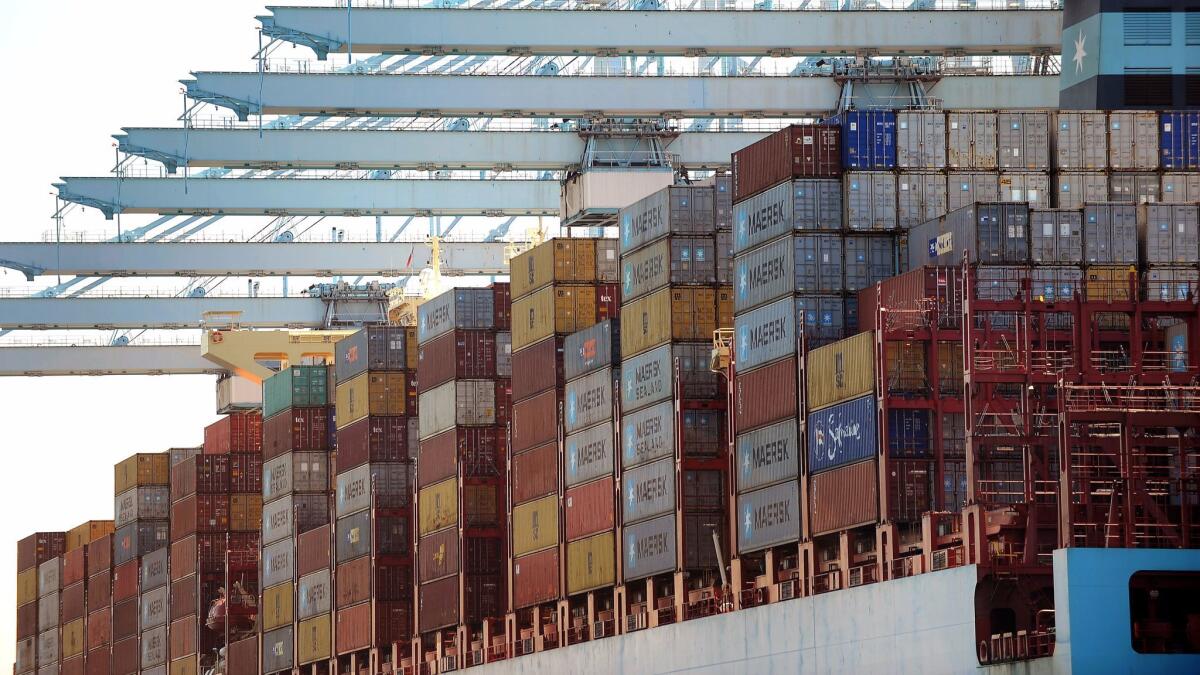Longshore union is offered a contract extension at ports of Los Angeles and Long Beach

The Pacific Maritime Assn., which represents terminal operators and shipping companies at the ports of Los Angeles and Long Beach, has formally proposed a three-year contract extension to the International Longshore and Warehouse Union.
For the record:
1:09 p.m. Nov. 28, 2024A previous version of this story described a 2014-2015 contract dispute as a strike.
The current contract expires July 1, 2019.
“PMA can confirm that it has presented a final proposal for a three-year extension to the ILWU, which is currently reviewing the proposal with its caucus,” Wade Gates, a spokesman for the association, said in an emailed statement.
A majority of union delegates from 29 West Coast ports voted to allow rank-and-file members to vote on the contract, in an ILWU meeting in San Francisco on Friday. “The rank-and-file membership always has the final say on any contract,” said ILWU International President Robert McEllrath, in an emailed statement.
For about a year, the two sides have been talking informally about a potential extension, after the prospect was raised at a maritime conference in Long Beach in March 2016.
The offer includes pay bumps, increases in the employers’ contribution to pensions and no changes to workers’ health insurance, according to a person with knowledge of the negotiations who was not authorized to discuss the terms publicly. Here are the proposal’s key details:
- A wage increase of 3.1% per year from 2019 through 2022, meaning workers’ pay would increase from a base rate of $42.18 an hour to $46.23 over that period.
- An uptick in employer contributions to the pension plan, so that someone who’s worked 25 years and retires starting in 2022 would receive $64,500 a year, up from $60,000 under the current contract.
- No tweaks to the healthcare program, in which longshore workers don’t pay premiums and pay a $1 copay for prescription medication.
A deal would bring peace of mind to the workers and employers doing business at two of the largest ports in the nation, where memories linger of a four-month contract dispute and accompanying slowdown in port traffic in 2014 and 2015.
“It allays the fears of shippers about the future of container handling at our West Coast ports,” said Jock O’Connell, an international trade advisor at Beacon Economics, a Los Angeles research firm. “It means there’s less to worry about on the West Coast.”
Follow me @NatalieKitro on Twitter
More to Read
Inside the business of entertainment
The Wide Shot brings you news, analysis and insights on everything from streaming wars to production — and what it all means for the future.
You may occasionally receive promotional content from the Los Angeles Times.











